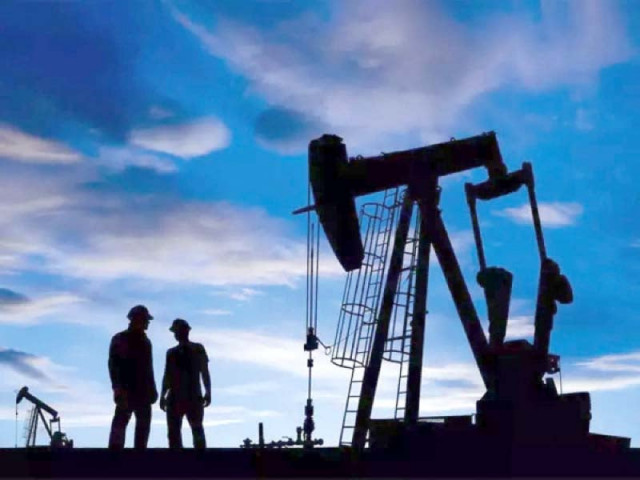Oil supply cost proposal rejected
Govt reluctant to burden consumers with heavy cost of condensate transportation

The government has turned down a proposal floated by the oil and gas industry regulator that called for recovering the cost of condensate transportation to Attock Refinery Limited (ARL), running into millions of rupees per month, from consumers.
Ogra also requested that the supplier, United Energy Pakistan Limited (UEPL), may be convinced to bear the transportation charges as it may be more economical than export. The government has recently allocated 5,000 barrels per day (bpd) of condensate to ARL, which will be supplied from UEPL’s Naimat facility, at higher transportation charges.
The incremental transportation cost adjustment required through the inland freight equalisation margin (IFEM) will be Rs728 per barrel, or Rs71.5 million per month. In a recent meeting of the Economic Coordination Committee (ECC), the Petroleum Division revealed that UEPL had been requested to consider Ogra’s proposal that required the company to bear the cost of transporting condensate to ARL.
However, UEPL did not agree to the proposal as it referred to Article 10.2 of relevant agreements, ie Mirpurkhas and Khipro Petroleum Concession Agreements, which say “the president or his designee shall purchase crude oil and condensate delivered at the nearest operating refinery.” UEPL pointed out that crude oil transportation to ARL would be four times costlier than the transportation to an export terminal in Karachi. According to the company, a round trip from fields to Karachi takes three days as compared to a trip to Rawalpindi that takes 10 days, requiring a significantly higher bowser fleet.
UEPL also highlighted that due to their high receivables against the sale of petroleum to local companies, the current inflow of dollars through exports was important for maintaining their exploration and production (E&P) activities in the country. According to Rule 43(3) of the Pakistan Petroleum Exploration and Production Rules 2013, the Petroleum Division said, the federal government may decide that the holder of a lease shall arrange and pay for adequate transportation of crude oil, condensate and natural gas liquid which it has thus ordered to be delivered to the nearest operating refinery in Pakistan.
There were five major refineries in the country. Of these, four are situated in the south and mid-country, which process imported crude oil as well as locally produced crude oil and condensate.
The fifth refinery, namely ARL, is situated in Rawalpindi with a processing capacity of 53,400 bpd. It currently processes the crude oil/ condensate allocated from northern fields (Khyber-Pakhtunkhwa and Punjab).
ARL meets petroleum product requirements of the northern region as well as supply kerosene and jet fuel to security organisations and low sulphur fuel oil to Kot Addu Power Company. In the past, ARL had also processed the crude oil produced by southern fields (Sindh) with the adjustment of transportation charges through IFEM. However, it was discontinued in 2012 following major discoveries in the northern region, ie K-P fields, where crude oil production increased to over 60,000 bpd.
The production was higher than the processing capacity of ARL and the surplus was allocated to mid-country and southern refineries.
However, recently the production from northern fields has dropped naturally to around 40,000 bpd, which is less than ARL’s processing capacity. Projections indicate that production from the existing fields will decrease further in the coming years. The Petroleum Division told the ECC that UEPL’s fields in Sindh were currently producing more than 9,000 bpd of light crude oil/ condensate, which had been allocated to southern refineries.
However, the refining of condensate results in production of a large quantity of naphtha and southern refineries have a limited capacity to upgrade naphtha into gasoline. Consequently, the surplus naphtha is exported.
Therefore, the southern refineries only accept a limited quantity of condensate to maintain the optimum oil mix and UEPL exports the remaining condensate.
UEPL exported around 2.7 million barrels of light crude oil/ condensate during calendar year 2022.
ARL tested a condensate sample of UEPL’s Naimat facility and was willing to process 5,000 bpd. Later, it requested that the condensate may be allocated/ diverted to the refinery as per the requirement and its transportation charges may be adjusted by Ogra through the prevailing IFEM mechanism.
Resultantly, additional petroleum products will be produced by the refinery instead of imports, leading to substantial savings of foreign exchange. The ECC was apprised that the Finance Division and Ogra were consulted on the proposed allocation of condensate and the reimbursement of transportation charges under the IFEM mechanism.
Both the Finance Division and Ogra supported the proposals. However, the regulator suggested that condensate transportation was an upstream activity and its freight cost determination fell within the domain of the federal government. Therefore, it requested to determine the freight cost in order to enable the regulator to incorporate it into future IFEM determinations.
Published in The Express Tribune, August 6th, 2023.
Like Business on Facebook, follow @TribuneBiz on Twitter to stay informed and join in the conversation.


















COMMENTS
Comments are moderated and generally will be posted if they are on-topic and not abusive.
For more information, please see our Comments FAQ